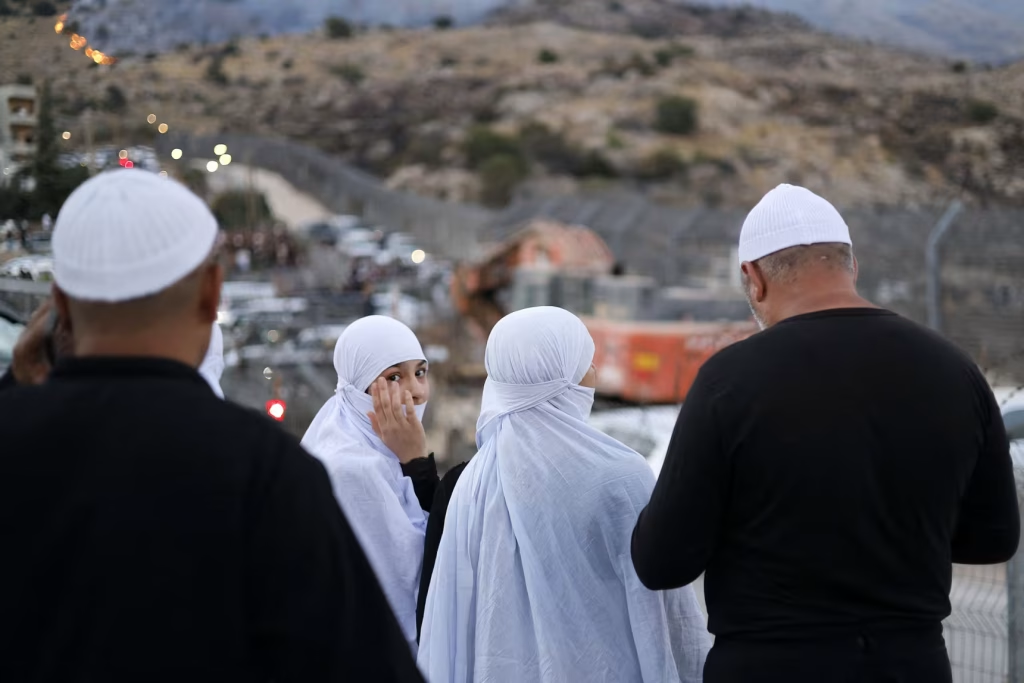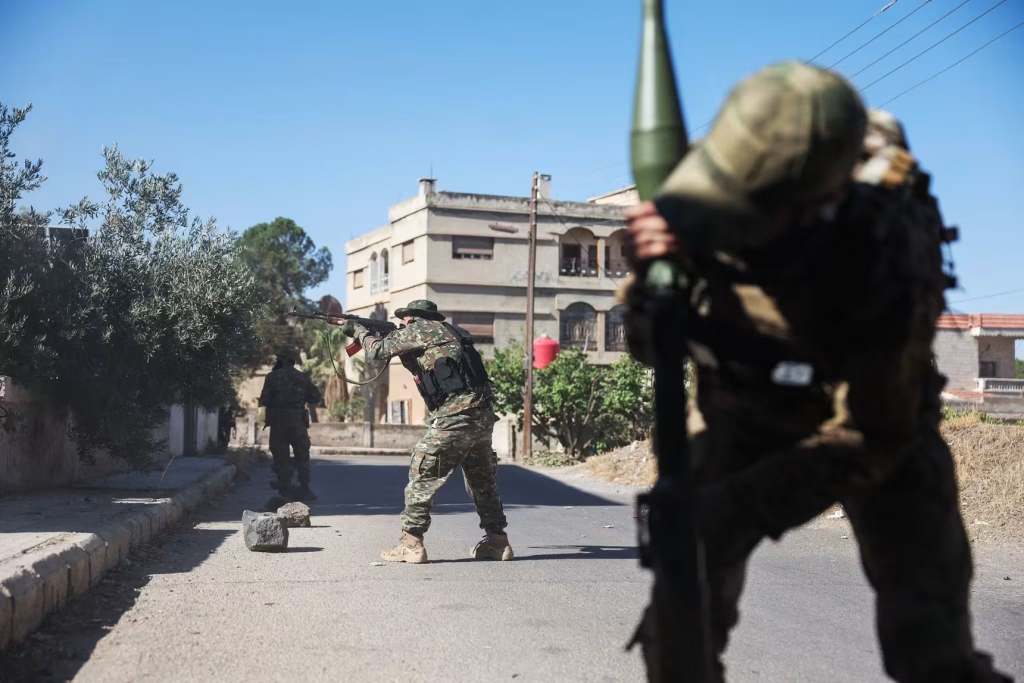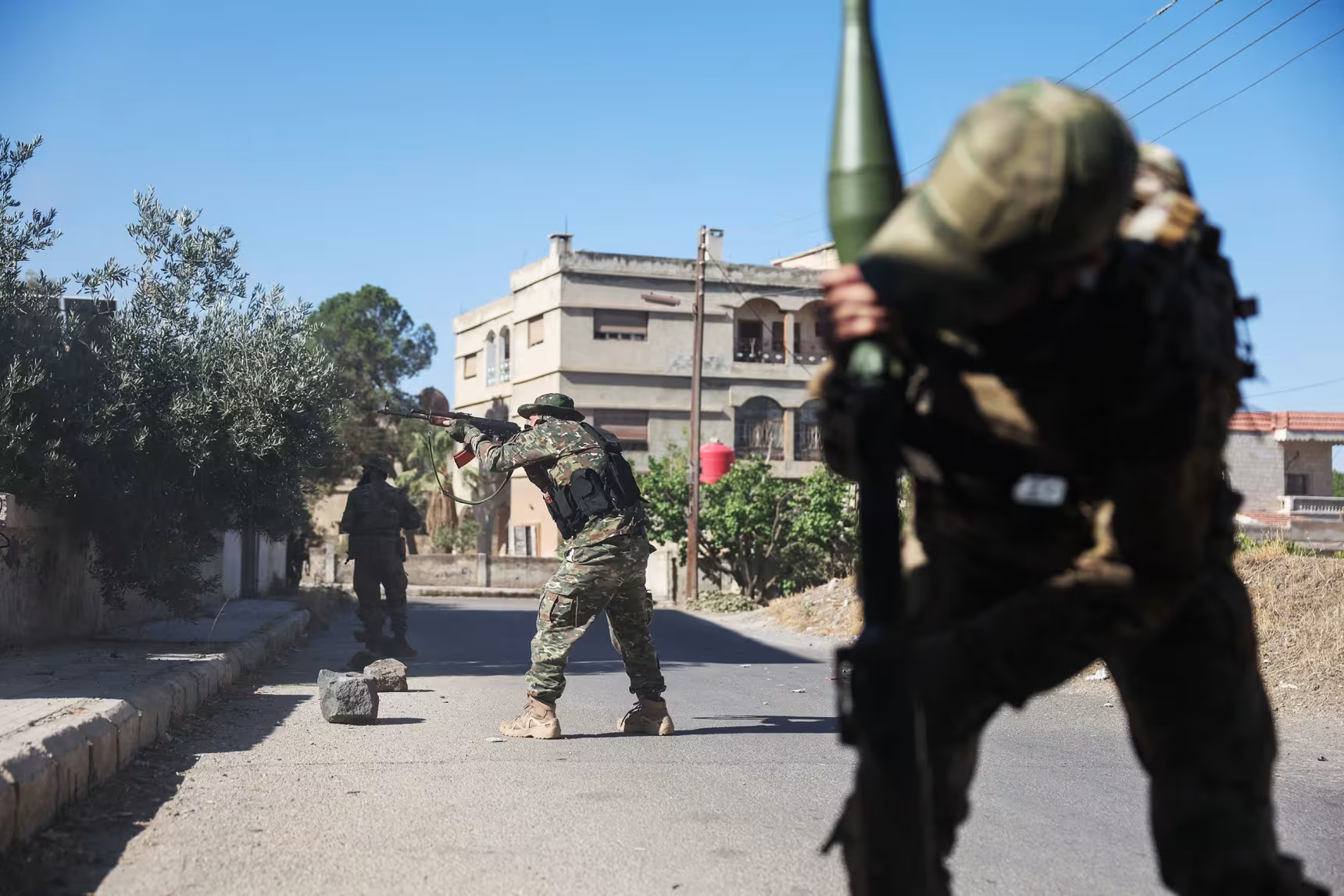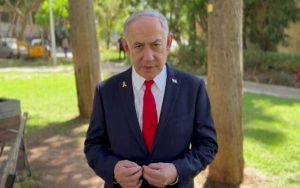Syria’s leader accused Israel on Thursday of sowing discord with a wave of intense airstrikes following deadly sectarian clashes that threatened the country’s fragile unity and illustrated its neighbor’s capacity to attack across the region.
In a televised speech, Interim President Ahmed al-Sharaa promised to protect the rights and freedom of Syria’s Druze community — and avoid a “open war” with Israel. He said Syria “will never be a place for division or fragmentation.”
His comments came after the Syrian government and leaders in the Druze community announced a renewed ceasefire Wednesday after days of clashes in the southern city of Sweida threatened the relative stability achieved in the country since the toppling of the Assad regime in December.
A previous ceasefire to end the violence in Sweida quickly crumbled so it was unclear whether the latest truce would hold.
Israel launched rare strikes in Damascus and elsewhere on Wednesday in a campaign it said was aimed at defending the Druze, who also have a strong presence in Israel and are considered a valued minority — as well as forcing Islamic militants away from its border.
Here’s what we know.
Who are the Druze?
The Druze community is a tight-knit sect dating back to the 11th century that draws from Christian, Muslim and Jewish beliefs, as well as elements of Hinduism and classical Greek philosophy, according to the Pew Research Center.
Its population consists of more than 1 million people living primarily in Syria and Lebanon, as well as in Jordan and in Israel, where there are around 150,000 Druze residents, according to figures from the country’s Central Bureau of Statistics.

In Syria, the Druze represent one of the country’s myriad religious and ethnic minorities, of which many are wary of promises from the country’s new leadership of a more unified nation — and the recent violence has done little to assuage those suspicions.
“We’ve lived through very tough days, and I was terrified for my wife and four children,” Saleh Muthanna, a 43-year-old Druze resident of Sweida, told NBC News on Wednesday of the recent violence. “The kids were constantly screaming, terrified of dying,” Muthanna, a taxi driver, said.
“The state is supposed to build a bridge of trust with its people, not through violence, killing, and intimidation,” he said, speaking prior to Sharaa’s comments.
How did recent violence begin?
The Syrian Observatory for Human Rights, a U.K.-based war monitor, said the clashes began after “local tribesmen,” who the AP reported were Bedouin, in the Sweida province set up a checkpoint where a Druze man was attacked and robbed. The incident appeared to set off an exchange of tit-for-tat attacks.

The Syrian observatory reported that by Wednesday, over 300 people had been killed, including dozens who had been “extrajudicially executed,” despite the government sending security personnel to the region to restore order. It charged that “blatant abuses and atrocities” were carried out by security troops during the riots.
The situation on the ground could not be independently verified by NBC News.
According to the Reuters news agency, Sharaa pledged Thursday to hold individuals accountable for transgressions against “our Druze people,” though it is unclear how or when that process will take place.
For what reason is Israel involved?
Israel claimed that it carried out its attacks in Damascus and other locations in an effort to defend the Druze people and drive Islamic radicals away from its border. However, in the wake of military operations against Iran and the militant Hezbollah group in Lebanon, Sharaa charged the nation with attempting to foment discord and instability within Syria.
Israel has “established a clear policy: the demilitarization of the area south of Damascus” and “protecting the brothers of our brothers — the Druze,” according to Israeli Prime Minister Benjamin Netanyahu’s Thursday update. He also claimed that “both of these principles were violated by the regime in Damascus.”
The most recent ceasefire was “achieved via strength,” according to Netanyahu. via strength, not via pleading or begging. Israel would “continue to act as required,” he stressed.
As the U.S. ally continues to face growing criticism over its deadly war in Gaza, Israel runs the prospect of increased isolation in the region and on the global scene, according to Sanam Vakil, director of the Middle East and North Africa program at the London-based think tank Chatham House.
“It did not need to undermine its legitimacy and credibility in Syria since everyone understands that Israel is the… leading military force in the Middle East,” she said.
Fears of more acts of violence
Washington is “extremely alarmed” about the violence, Secretary of State Marco Rubio said Wednesday, describing it as a “direct danger to efforts to help construct a peaceful and stable Syria.” He said that Israel and Syria were the subjects of “continuous negotiations” with the Trump administration.
According to a Reuters transcript, a defiant Sharaa declared, “We are not among those who fear war.” He added that local tribes and sheikhs had been tasked with ensuring security in Sweida, saying, “But we put the interests of the Syrians before anarchy and damage.”
Sharaa has made an effort to put his extremist past behind him and increase trust in his leadership worldwide. However, this seems to be the biggest threat to his tenuous hold on power since the overthrow of dictator Bashar al-Assad.
Vakil added that violent outbursts felt inevitable in the future.
“Unfortunately, this is not ended,” she said, adding that strong efforts toward accountability and reconciliation as well as a more “permanent de-escalatory accord” would be necessary to reduce the likelihood of new violence.





